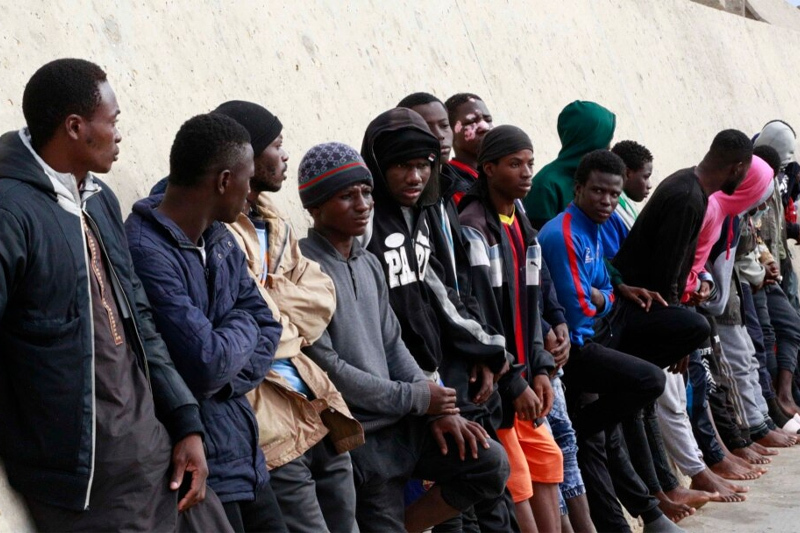
migrants accept voluntary return to escape ‘torture’ of libya prison
Many migrants have accepted voluntary return to their home countries to escape intense torture of Libya prison. Many migrants, who engage in a grueling journey through the Sahara Desert, never made it past Libya.
Since 2015, the European Union (EU) has provided financial support to the Libyan coast guard as part of its plan to reduce the flow of migrants from North Africa.
According to the UNHCR (United Nations High Commissioner for Refugees), 2,500 migrants have died or gone missing while trying to cross the Mediterranean to Europe so far this year.
Libya migrant arrests
The United Nations mission in Libya expressed concern over the country’s arbitrary arrest of migrants and asylum seekers.
In recent months, Libya arrested thousands of men, women and children from the streets and their homes after conducting raids on alleged human traffickers camps.
Many migrant children and pregnant women were detained in overcrowded and unsanitary conditions in Libya migrant prisons.
Keep Reading
Migrants accept voluntary return to escape ‘torture’ of Libya Prison
According to openDemocracy, Kwaku Amoah, a man from Ghana, was imprisoned for a year in Libya prison after being rescued at sea. He decided to travel to Italy, seeking a better life. He faced a problematic journey through the Sahara Desert. He was rescued from the sea but was kept in Libya prison. He had to return to Ghana to escape torture in Libya prison.
Migrants were treated horribly at prison. Kwaku Amoah said, “They made us feel like we were no better than animals, just because we’re Black.”
The jail had no windows or doors, just holes in the wall. Kwaku Amoah said, “The authorities threatened to insert a rod into my anus if I didn’t release money from it.”
Problems faced by migrants in Libya prison
Migrants were not getting adequate food to survive in Libya prison. The detention center had lice and cockroaches everywhere. Their beds were filled with bed bugs and other insects. The authorities would beat them.
In the end, migrants couldn’t bear the abuse anymore and agreed to go back to their home countries.
The authorities in Libya said that the migrants were returning to their home countries willingly. However, they were forced to return to their home countries.
Kwaku Amoah told openDemocracy, “I had to say that I was returning to my country willingly. I signed the papers, but it was never really my choice. The UN pretends that people are agreeing to return, but is it really a choice when the options are abuse in Libya or poverty in Ghana?”









